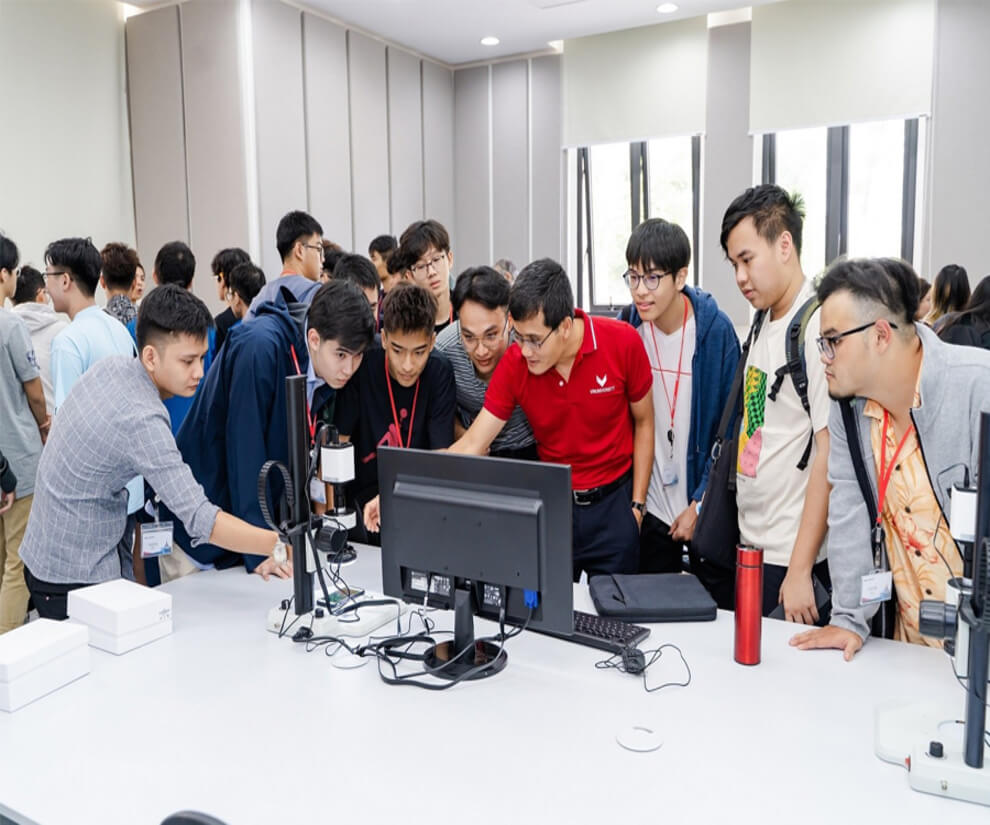Recent graduates often face many challenges when job hunting, as they lack significant experience and practical knowledge. So, what do employers look for in recent graduates?
This article will answer this question through three key factors: knowledge, skills, and attitude.
Recent Graduates and the Hidden Realities
Recent graduates are a potential workforce for businesses, as they bring energy, creativity, and a willingness to learn.
However, to secure a suitable and stable job, recent graduates also face numerous challenges, especially in the increasingly competitive labor market.
So, what do employers look for in recent graduates?
This is a question many graduates worry about when applying for jobs. In this article, we will introduce the three key factors employers typically consider in recent graduates: knowledge, skills, and attitude.

Knowledge
Knowledge is a fundamental and important factor that employers seek in recent graduates. This knowledge includes specialized knowledge, foreign language skills, and understanding of the market and the company.
Specialized Knowledge refers to the knowledge related to the field you wish to work in, such as accounting, marketing, IT, law, etc. Specialized knowledge helps you understand your job and apply it in practice. It is usually assessed through academic qualifications, certifications, grades, projects, assignments, etc.
Foreign Language Knowledge pertains to knowledge of a language other than your native language, such as English, Chinese, Japanese, etc. Foreign language skills help you communicate, learn, stay updated, and build relationships. This knowledge is typically assessed through exams, certifications, study programs, and study-abroad experiences.
Market and Company Knowledge involves understanding the economic, social, cultural, political, and legal environment, as well as the industry, sector, products, services, customers, competitors, and partners of the company you wish to work for. Knowledge of the market and company helps you gain a comprehensive view, analyze, evaluate, suggest, and solve problems. It is usually assessed through tests, interviews, reports, and presentations.
Knowledge is an important factor, but it is not the only one. You need to combine knowledge with other elements to create a unique and impressive profile for employers.

Skills
Skills are another crucial factor that employers pay attention to in recent graduates. These skills include professional skills, soft skills, and life skills.
Professional Skills refer to skills related to the job you want to pursue, such as software proficiency, report writing, presentation skills, data analysis skills, etc.
Professional skills help you complete tasks effectively, with high quality and efficiency. These skills are typically assessed through practical assignments, tests, projects, and exercises.
Soft Skills are skills related to communication, collaboration, leadership, problem-solving, creativity, self-learning, adaptability, etc. Soft skills help you work effectively in diverse environments, with teams, customers, and partners.
These skills are often evaluated through interviews, presentations, speeches, reports, and performance evaluations.
Life Skills involve skills related to managing oneself, maintaining health, balancing work and life, handling stress, building relationships, and personal development.
Life skills help you lead a happy, healthy, balanced life while working toward your goals. Life skills are often assessed through how you introduce yourself, your behavior, how you express your attitude, and how you interact with others.
Skills are an essential factor, but they are not everything. You need to combine skills with other elements to achieve effectiveness and professionalism in your work.

Attitude
Attitude is the most important factor that employers focus on when evaluating recent graduates.
Being able to demonstrate a clear career orientation, enthusiasm, and adaptability in different work environments is crucial when trying to persuade employers.
Even if your specialized knowledge is limited, a positive attitude is a significant advantage and can help you stand out. Employers’ acceptance and positive impressions often stem from your work attitude.
Additionally, a proactive mindset, a desire to learn, a willingness to improve, hard work, and enthusiasm will help you navigate probation periods more smoothly.
Is Attitude Everything?
Why do employers care more about a candidate’s attitude than their technical expertise? Because specialized knowledge and job skills can be developed during the course of employment.
Companies do not necessarily need outstanding employees; they need people who are passionate about their work. No one wants to work with someone talented who doesn’t know how to apply their skills and lacks passion for their job.
Colleagues also prefer to work with people who are enthusiastic, responsible, and not lazy or sluggish. Attitude also impacts the quality of work. If you have a positive attitude, you will be highly regarded by your peers.
Among the three factors—knowledge, skills, and attitude—attitude is the most crucial for employers. Focus on improving all three, but especially your attitude, to advance in your career.
